The recent find by Britannia Archaeology experts unearthed various unique artefacts on a Bronze Age archaeological site. One of the finds is an impressively intact urn that dates back to 4,000 years.
Britannia Archaeology experts unearthed an intact Bronze Age pot as well as a myriad of exceptional finds on the site near Ely, Cambridgeshire. Although the excavation was expected to last just a few months, the discovery of thousands of years of occupation in the area extended the dig for nearly a year.
Archaeologist Alice Schute described the findings: "Exceptional is the word. It's something you won't come across often in your career, the sheer intensity and amount of finds."
One of the most impressive artefacts from the site was a nearly intact 35cm-high late Neolithic or early Bronze Age urn, dating back to 4,000 years.
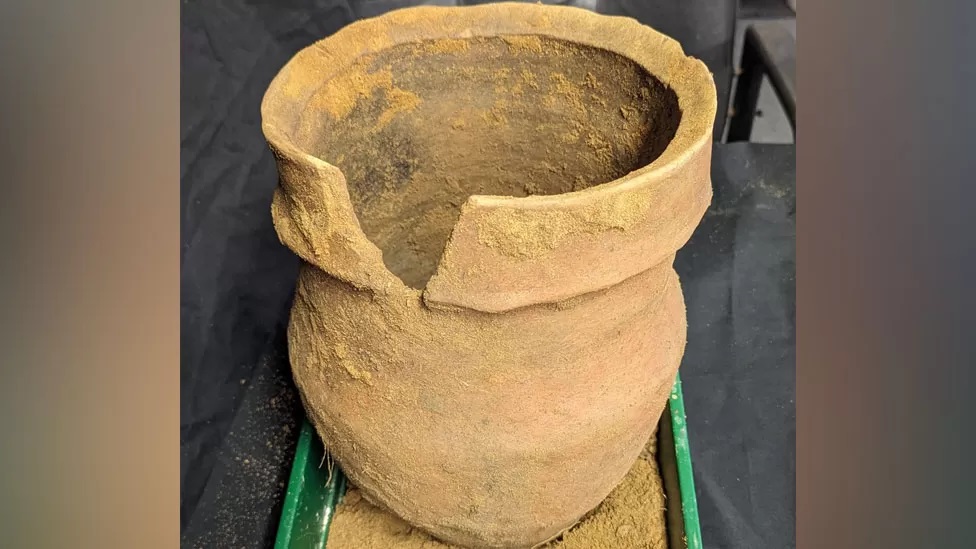
Figure C: Britannia Archaeology
"Normally, we find fragments of pots which are a bit smashed and broken. We don't usually get a whole vessel that's 95% complete and still standing," Schute adds.
A Pre-Roman Settlement
The evidence suggests the site housed inhabitants until its abandonment during the Roman period. In the 4th or 5th century AD, a Saxon village developed upon the abandoned settlement.
Archaeologists excavated at least 20 buildings and a hall, which seem part of a much larger settlement.
According to Schute, the sunken feature buildings of the village are a noteworthy element. "Instead of being built above ground, they dig into the ground, and it's quite rare to get one or two. But we've got 12, and some of them are particularly deep, 20 to 30cm underground," says Schute.
Archaeologists have found loom weights, spindle whorls, needles and tiny beads, revealing some buildings might have served for manufacturing purposes.


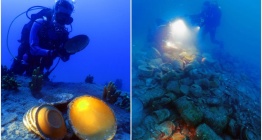
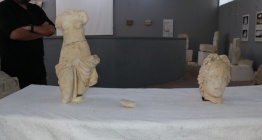
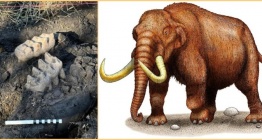
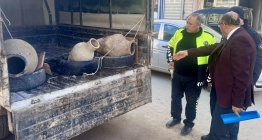

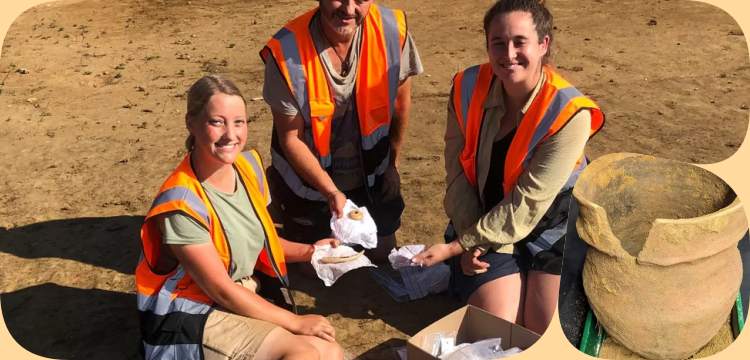
 Bir Sapiens kafilesi Avrupa'ya buz çağında ulaştı, soğuğa direndi ama soyunu sürdüremedi
Bir Sapiens kafilesi Avrupa'ya buz çağında ulaştı, soğuğa direndi ama soyunu sürdüremedi 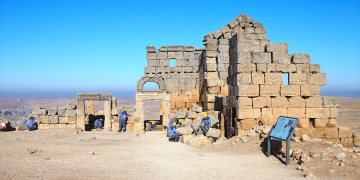 Prof. Dr. Aytaç Coşkun: Zerzevan Kalesi'nin altında bir yeraltı kenti var
Prof. Dr. Aytaç Coşkun: Zerzevan Kalesi'nin altında bir yeraltı kenti var  Arkeologlar 4 Bin yıl önce salyangozların ne amaçla toplandığını çözmeye çalışıyor
Arkeologlar 4 Bin yıl önce salyangozların ne amaçla toplandığını çözmeye çalışıyor  Binbeşyüz yıl önce Balıkesir'de batan tabak yüklü geminin batığı bulundu
Binbeşyüz yıl önce Balıkesir'de batan tabak yüklü geminin batığı bulundu 




